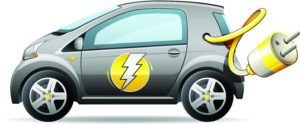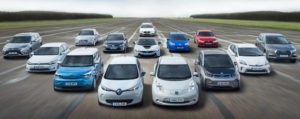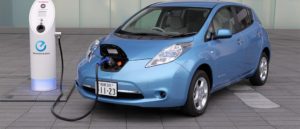
The main cause of concern for the environmentally aware is the amount of carbon monoxide and other nocive emissions than vehicles with internal combustion engines spew into the atmosphere every day. This pollution has been identified as the main cause of climate change, has become a huge problem, not only for the industrialized nations but for the entire planet.
Over the years, the understanding of the ill effects these emissions have both on the environment and on the human health has increased. Of course, there have been many attempts to do some damage control on this problem. One of these measures is to use vehicles powered by less polluting engines.
Costa Rica has become a veritable showcase for many green initiatives. They range from cleaning up plastic fouled beaches to forest conservation and from a growing eco-friendly tourist industry to clean energy production.

Now, according to the “Ley de Incentivos y Promoción para el Transporte Eléctrico“, a bill recently passed by the Legislative Assembly of Costa Rica, electric vehicles (EVs) are exempt from the general sales tax, the selective consumption tax, and the customs value tax. These exemptions seek to promote the import and purchase of electric vehicles in the country and to make EVs more affordable for the general public.
The new bill is relevant to Costa Rica’s green plans for one reason. Costa Rica wants to be recognized as “carbon neutral” by 2021, a year that marks the country’s 200th anniversary. To be carbon neutral means to reduce the emission of greenhouse gases (GHGs) to zero. Most GHGs emissions come from transport, farming, industry, and fossil fuel power plants. Costa Rica’s current emissions of CO2 are around 14.6 million metric tons each year.
Some official reports indicate that the fossil fuel used by cars, buses, and trains accounts for almost 70% of the country’s GHGs emissions. Obviously, more electric and hybrid vehicles (HV) would contribute to cut down this figure significantly. The total number of vehicles circulating in Costa Rica was, as of January 2017, about 1.5 million, of which approximately half are transport vehicles. Compare this figure with the total number of EVs: less than 400.

Why is that? In a nutshell, EVs are expensive. They use electricity stored in a battery pack to power an electric motor and turn the wheels. The battery pack has to last years. Although there is still the lot of R&D to be done in this field, the technology involved in the process is not cheap. So, for all the good things they have going for them, the biggest hurdle for EVs to become really popular is a steep price tag.
Some of the EV models currently offered in the country are Mitsubishi i-Miev; Reva; Toyota Prius, Prius C and Camry and Lexus CT, RX, ES, GS, and LS.
For 2022, Costa Rica expects to have about 37000 EVs. Preparing for that the two power companies, Instituto Costarricense de Electricidad (ICE) y la Compañía Nacional de Fuerza y Luz (CNFL), are installing 18 electrogasolineras (electrical recharge stations) in Guanacaste, in the North Pacific region, Zarcero, a town located West of the capital, San José, and in San Carlos, in the Northern-Central region.

Of course, achieving carbon-neutral status is no mean feat. It requires a nationwide effort where individuals, businesses, companies, and the government work together fostering projects like advanced renewable energy and sustainable infrastructure. This new law is another step in the right direction. Whether Costa Rica will achieve this goal or not still remains to be seen, but in the long run, this pursuit may inspire other countries to imitate it. And that is definitely a good thing for the world’s environment.
